- Home
- Video Courses
- Certifications
- SY0-401: CompTIA Security+ Dumps

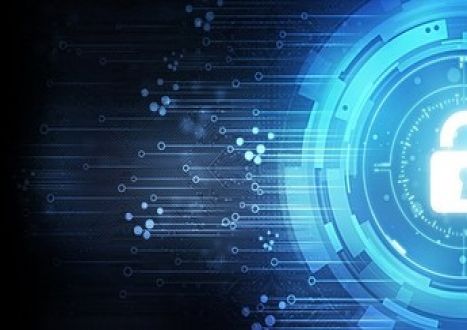
SY0-401: CompTIA Security+ Certification Video Training Course
SY0-401: CompTIA Security+ Certification Video Training Course includes 9 Lectures which proven in-depth knowledge on all key concepts of the exam. Pass your exam easily and learn everything you need with our SY0-401: CompTIA Security+ Certification Training Video Course.
Curriculum for CompTIA Security+ SY0-401 Certification Video Training Course



SY0-401: CompTIA Security+ Certification Video Training Course Info:
The Complete Course from ExamCollection industry leading experts to help you prepare and provides the full 360 solution for self prep including SY0-401: CompTIA Security+ Certification Video Training Course, Practice Test Questions and Answers, Study Guide & Exam Dumps.
CompTIA Security+ (SY0-401): Comprehensive Exam Prep Course
Introduction to the CompTIA Security+ Certification
The CompTIA Security+ certification has long been recognized as one of the most respected entry-level credentials in the field of cybersecurity. The exam code SY0-401 was the version that established the foundation for many professionals entering the domain of information security. Even though newer versions exist, SY0-401 remains a cornerstone for understanding the history and structure of Security+ training. This course is designed to deliver an in-depth journey through the core knowledge areas tested in this exam while also building real-world skills that apply beyond the certification test.
Why the CompTIA Security+ SY0-401 Matters
Cybersecurity is no longer a specialized niche but a requirement in every industry. Organizations of all sizes face continuous threats ranging from data breaches to advanced persistent attacks. The Security+ certification validates an individual’s ability to identify risks, secure systems, and apply security best practices. The SY0-401 version established a standard that continues to influence the training path for IT professionals. Completing this course ensures that learners not only prepare for the exam but also strengthen their professional credibility in a competitive job market.
Goals of This Training Program
The purpose of this course is twofold. First, it prepares learners for all the topics covered in the CompTIA Security+ SY0-401 exam. Second, it equips them with a structured and practical understanding of information security concepts that can be applied immediately in a work environment. From network security to cryptography, the course ensures learners gain both theoretical knowledge and practical insight into how security principles are implemented in the real world.
Structure of the Course
The course is divided into four main parts. Each part focuses on specific aspects of the certification objectives. This first part provides an extensive overview and a breakdown of the modules. The next parts dive deeper into requirements, course descriptions, and identifying the audience best suited for this training. By the end of the program, learners will have a comprehensive understanding of the exam blueprint as well as the broader skills required to excel as a security professional.
The Evolution of the SY0-401 Exam
Although SY0-401 has been retired and replaced by newer versions, it is important to appreciate its historical significance. It served as the entry point for thousands of professionals in cybersecurity. Understanding this exam’s objectives provides context for the way CompTIA has refined its certification paths. By learning from SY0-401, students gain insight into how the cybersecurity landscape has evolved and how to adapt to future changes.
Key Domains Covered in the Course
The Security+ SY0-401 exam was structured around a set of critical domains. Each domain represents a core area of knowledge. These domains include network security, compliance and operational security, threats and vulnerabilities, application data and host security, access control and identity management, and cryptography. Each module in this course corresponds to these domains, ensuring complete coverage of the exam’s scope.
Course Approach and Methodology
The methodology of this training emphasizes clarity, application, and reinforcement. Learners will explore concepts through structured explanations, scenario-based discussions, and conceptual breakdowns that simplify complex topics. The approach avoids memorization without understanding and instead prioritizes deep comprehension. Learners will find that each section builds upon the previous, creating a logical flow that mirrors both the exam outline and the way cybersecurity operates in the real world.
Learning Outcomes of the Course
Upon completing the course, students will have mastered a wide range of competencies. They will be able to analyze network infrastructures, identify vulnerabilities, configure secure protocols, understand the principles of cryptography, apply security policies, and evaluate compliance requirements. They will also have a strong grasp of identity management, operational controls, and risk assessment strategies. These outcomes align with the expectations of the Security+ exam while also reflecting the day-to-day responsibilities of security practitioners.
Modules Overview
The course modules are the heart of the program. Each module represents a dedicated section that explores one of the exam’s major domains. The modules are structured progressively, beginning with foundational concepts and advancing toward more technical and specialized topics. Learners will find that the modules combine conceptual explanations with practical examples to ensure understanding is comprehensive and applicable.
Module One: Network Security
Network security forms the foundation of the SY0-401 exam and is critical to protecting organizational assets. In this module, learners will study the principles of securing networks, including firewalls, intrusion detection systems, intrusion prevention systems, and the use of demilitarized zones. The module explores the configuration and deployment of routers and switches, emphasizing secure design principles. It also examines wireless security and the vulnerabilities associated with misconfigured networks. Learners will gain the ability to identify weaknesses in network infrastructures and apply the correct countermeasures.
Module Two: Compliance and Operational Security
The second module focuses on compliance and operational security. Every organization must operate within regulatory frameworks and internal security policies. This module introduces learners to risk management, business continuity planning, and disaster recovery strategies. It explains how compliance influences security decisions and why operational controls are vital to long-term stability. Learners will examine examples of regulatory standards such as HIPAA, PCI-DSS, and SOX to understand how legal and ethical considerations shape security practices.
Module Three: Threats and Vulnerabilities
Cybersecurity professionals must constantly analyze and respond to threats. This module examines the many forms of threats, including malware, phishing, man-in-the-middle attacks, and denial-of-service attacks. Learners will also study system vulnerabilities, such as misconfigured systems, outdated software, and weak authentication mechanisms. By the end of this module, learners will understand how to identify, evaluate, and mitigate both internal and external threats, ensuring resilience against constantly evolving attack methods.
Module Four: Application, Data, and Host Security
Applications, hosts, and data are the backbone of digital operations. This module focuses on protecting them against breaches and unauthorized access. Learners will explore the principles of secure coding, patch management, and host-based intrusion prevention. The module also introduces data protection strategies, including encryption, data loss prevention, and backup practices. Learners will understand how applications can become gateways for attackers if not properly secured and how to implement defensive strategies at every level.
Module Five: Access Control and Identity Management
Controlling who has access to what is one of the most fundamental principles of security. This module examines identification, authentication, and authorization models. Learners will explore the differences between discretionary, mandatory, and role-based access controls. The module also covers multifactor authentication, federated identity systems, and directory services. By mastering these concepts, learners will be able to design and enforce strong access policies that protect critical resources.
Module Six: Cryptography
The final module centers on cryptography, one of the most important technical subjects in information security. Learners will study encryption algorithms, hashing functions, and key management strategies. The module explains how cryptography secures communications, protects sensitive data, and underpins authentication systems. Learners will also gain familiarity with public key infrastructure and digital certificates, providing a foundation for understanding secure email, web encryption, and advanced security solutions.
Integrating the Modules
Each of the six modules does not stand alone but connects seamlessly with the others. For example, cryptography supports identity management, and network security reinforces compliance requirements. Learners are encouraged to approach the course holistically, understanding how the modules interact in a broader ecosystem of security practices. This integrated approach ensures that knowledge gained is not compartmentalized but interconnected, reflecting real-world security challenges.
Practical Application of Knowledge
Throughout the modules, learners are encouraged to think beyond the exam. While exam preparation is a core goal, the ultimate objective is to prepare learners for professional scenarios. Practical application is highlighted through case studies, simulated environments, and scenario-driven discussions. Learners will repeatedly be asked to consider how principles translate into practice, preparing them for both the certification exam and the workplace.
The Role of Continuous Learning
Cybersecurity is a dynamic and evolving field. This course emphasizes the importance of continuous learning beyond the SY0-401 objectives. Learners are reminded that while mastering this material is valuable, remaining relevant requires staying current with new technologies, attack methods, and regulatory changes. The course instills not only knowledge but also the mindset of a lifelong learner in the field of security.
Preparing for Success
The overview and modules provided here set the foundation for success in the rest of the training. By understanding the structure and flow of the course, learners can engage more effectively with the material. The journey from network security to cryptography equips learners with a full spectrum of competencies. Each subsequent part of this training program builds upon this foundation, ensuring learners progress with confidence and clarity.
Introduction to Course Requirements
Every training program has certain requirements that learners should be aware of before starting. The CompTIA Security+ SY0-401 course is no exception. These requirements ensure that learners are prepared to engage with the content, understand the terminology, and apply the knowledge in both exam settings and real-world scenarios. Requirements can be divided into educational background, technical skills, professional experience, access to resources, and the mindset needed to succeed in the course.
Understanding the Importance of Requirements
Requirements are not barriers but guidelines to help learners assess their readiness. By reviewing these expectations, learners can identify areas they may need to strengthen before beginning the training. Requirements also help establish a baseline so the course can progress at an effective pace without leaving learners behind. Security+ is considered an entry-level certification, but it still assumes that participants possess some prior knowledge of IT concepts and computer systems.
Educational Background Expectations
The course does not demand advanced academic degrees. However, learners are expected to have a foundational understanding of information technology. This can be gained through high school education with a focus on computing, vocational training, or introductory college-level IT courses. An educational background that includes computer networking, operating systems, or information systems will provide a stronger foundation for understanding the course material.
Technical Knowledge Prerequisites
One of the most critical requirements is basic technical knowledge. Learners should already be familiar with the structure of networks, the function of common operating systems, and the way computers communicate. An understanding of IP addresses, protocols such as TCP and UDP, and the concept of client-server models is highly beneficial. Knowledge of operating system environments such as Windows, Linux, and macOS will also help learners understand examples presented in the course.
Professional Experience Recommendations
While Security+ is designed as an entry-level certification, CompTIA recommends that learners have at least two years of work experience in IT with a security focus. This is not a strict requirement but rather a recommendation that enhances the learning process. Experience working with network devices, troubleshooting connectivity issues, or administering user accounts will make it easier to grasp the course material. Learners without this experience can still succeed but may need to dedicate additional time to mastering foundational concepts.
Familiarity with Networking Concepts
Networking lies at the heart of cybersecurity. Learners should already understand the basic function of routers, switches, and firewalls. They should know how to configure IP addresses and subnets, and they should be comfortable with concepts such as DNS, DHCP, and VPNs. These topics will not be taught from scratch in the course but will be revisited in the context of security. Without this familiarity, learners may find the pace challenging.
Comfort with System Administration
System administration is another area that contributes to readiness for the course. Learners should understand how to manage user accounts, assign permissions, and install software on both Windows and Linux systems. They should know how to configure basic security settings such as password policies and user roles. Since many exam objectives deal with host security and operational practices, comfort with system administration is an important requirement.
Understanding of Basic Security Principles
Although the course will cover security concepts in depth, learners should already have a general awareness of security principles. They should understand why strong passwords are important, how antivirus software works, and what makes phishing emails dangerous. This foundation ensures that learners can quickly move into more complex topics such as cryptography and access control.
Access to Required Resources
To complete the course effectively, learners must have access to certain resources. A computer with reliable internet access is essential for accessing training materials and performing practice exercises. Learners should also have access to both Windows and Linux operating systems, whether through virtual machines or dual-boot setups, to practice configuration and security tasks. Virtualization software such as VirtualBox or VMware is strongly recommended for creating test environments.
Recommended Study Materials
Although this course is comprehensive, additional study materials are beneficial. Learners should consider official CompTIA Security+ SY0-401 study guides, practice exams, and lab simulations. These materials reinforce the course content and provide extra opportunities to test knowledge. Many learners also find it helpful to join online forums or study groups where they can discuss difficult topics and share insights with others preparing for the exam.
Time Commitment Requirements
Completing the Security+ course requires a significant time investment. Learners should plan to dedicate several hours each week to reading, practice exercises, and reviewing exam objectives. While the exact time will vary depending on prior experience, most learners will need between two to three months of consistent study to be fully prepared. Time management is a requirement because without a structured schedule, learners may struggle to retain information.
Language and Communication Skills
The course and exam are delivered in English, so proficiency in reading and understanding technical English is a requirement. Learners should be comfortable with technical terminology and be able to comprehend written explanations of security scenarios. Strong communication skills are also important in a professional context since security professionals often need to explain risks and policies to non-technical colleagues.
Attitude and Learning Mindset
Beyond technical requirements, the most important factor is the learner’s mindset. Cybersecurity can be complex, and not every concept is immediately intuitive. Learners must be patient, persistent, and willing to revisit challenging topics until they gain clarity. A curious mindset that constantly asks why a system works the way it does or how a vulnerability might be exploited will accelerate learning. The requirement here is not perfection but determination.
Familiarity with Exam Structure
Another requirement is awareness of how the Security+ exam is structured. The SY0-401 exam consisted of multiple-choice and performance-based questions. Learners should prepare for both styles, meaning they must not only memorize facts but also apply knowledge to practical scenarios. Understanding the exam format is essential for allocating study time effectively.
Technical Setup for Practice Labs
Hands-on practice is a requirement for mastering the content. Learners should be able to set up lab environments where they can simulate real-world configurations. For example, they might build a small virtual network with a router, a server, and a client machine to test firewall rules. These exercises require hardware or virtualization tools, so access to a computer capable of running multiple virtual machines is important. Without this setup, learners will miss the opportunity to practice applying their knowledge.
Recommended Certifications Before Security+
Although not mandatory, certain certifications are recommended before taking Security+. The CompTIA Network+ certification is particularly helpful since it covers networking in depth, which is a major component of Security+. Learners who have completed Network+ or have equivalent knowledge will find the Security+ material much easier to absorb. Similarly, basic IT certifications or courses in computer hardware and operating systems can help meet the requirements for this course.
Self-Assessment Before Starting the Course
Learners are encouraged to conduct a self-assessment before beginning. They should ask themselves whether they are comfortable configuring a basic network, whether they can explain what a firewall does, and whether they understand what encryption is used for. If they find themselves struggling with these questions, they may need to spend some time reviewing introductory IT material before enrolling. This ensures that they meet the requirements and are prepared to succeed.
Support from Employers or Institutions
In many cases, learners pursue Security+ with support from their employers or educational institutions. This support may come in the form of paid training time, access to labs, or funding for study materials. While not a strict requirement, having this support can greatly enhance the learning process. Employers often prefer candidates with certifications, so organizations are usually willing to assist motivated learners.
The Role of Motivation in Meeting Requirements
Motivation is the hidden requirement that underpins all others. A learner can have all the technical knowledge and resources but still fail if they are not motivated to commit to the program. The Security+ certification requires consistent effort, and motivation ensures that learners stay on track even when the material becomes difficult. This requirement cannot be measured in technical terms but is often the deciding factor in success.
Preparing to Meet the Requirements
For learners who may not meet every requirement at the start, the course provides guidance on how to prepare. This may include brushing up on networking concepts, experimenting with operating systems, or practicing simple security exercises. The goal is to ensure that every learner enters the course with the confidence that they are ready to engage fully with the material.
Conclusion to Course Requirements
The requirements of the CompTIA Security+ SY0-401 course serve as a roadmap for preparation. They outline the knowledge, resources, and mindset necessary for success. Meeting these requirements ensures that learners can progress through the modules without unnecessary difficulty and ultimately achieve certification. By recognizing the importance of education, experience, resources, and motivation, learners set themselves up for a productive and rewarding journey into cybersecurity.
Student Feedback
Similar CompTIA Video Courses



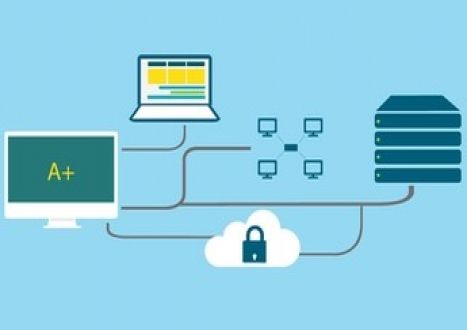




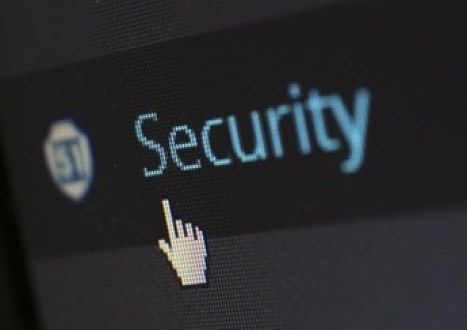

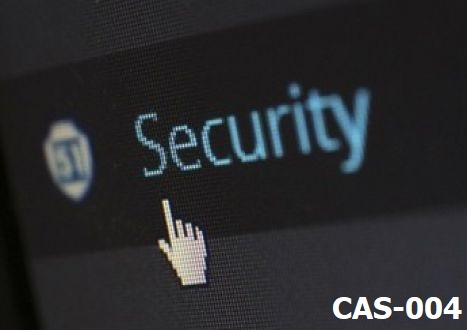

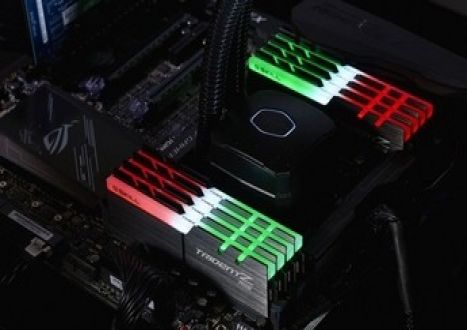




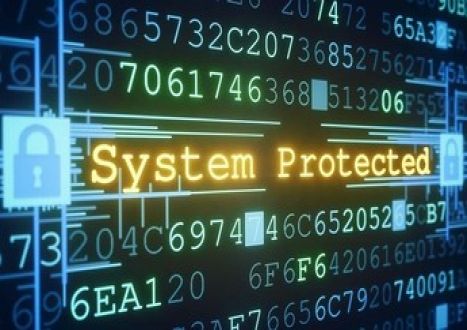





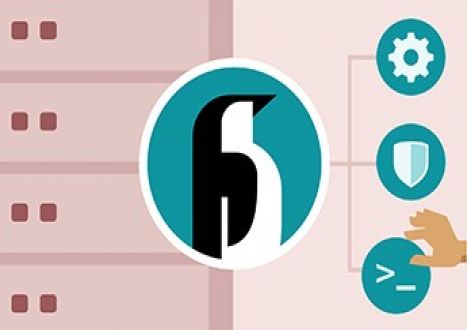





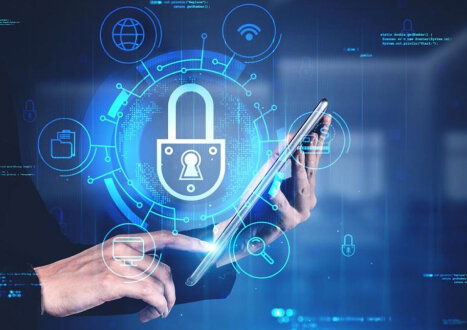


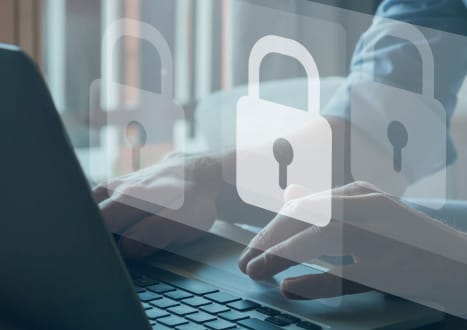








































Only Registered Members Can Download VCE Files or View Training Courses
Please fill out your email address below in order to Download VCE files or view Training Courses. Registration is Free and Easy - you simply need to provide an email address.
- Trusted By 1.2M IT Certification Candidates Every Month
- VCE Files Simulate Real Exam Environment
- Instant Download After Registration.
Log into your ExamCollection Account
Please Log In to download VCE file or view Training Course
Only registered Examcollection.com members can download vce files or view training courses.





One who wants to heighten their career and improve their job profile as security professional can go for the CompTIA Security+ Certification (SY0-401). This video course prepares the candidate to secure good marks in certification exam by providing detailed training on cybersecurity and risk management. The instructor of this course clears the doubt of every candidate and makes them understand the topic completely.
I have gone through my video course during my study but this one is the best I have ever found. Every feature of this video course is liked by thousands of IT-Professionals. One can easily access this course in mobile or T.V and helps the candidate to access as per their convenience. The video quality is very clear and the content is comprehensive.
I give 5 out of 5 to this course on cybersecurity because it made me a CompTIA security+ SYO-401 certified professional. The video course content covers every small technicality in details and made me understand it. The Instructor of this course is a very knowledgeable person and delivers the lecture beautifully.
I am totally satisfied with this course and the training they provided me. I am thankful to the instructor who helped me every phase of my training with his valuable insights on the topic. He cleared all my doubts and made me understand every single topic which was confusing to me.
Hi. Everyone I am a security specialist and wanted to enhance and upgrade my skill with CompTIA Security+ Certification. Luckily I found this course and I must say it is just awesome to do and it helped in a lot to know about cybersecurity and risk management.
The way this course teaches on how to build a reliable and elegant IT Infrastructure is just amazing. I recommend this video course to all my friends who are IT Professionals and want to get detailed knowledge about cybersecurity. This course will definitely help them to enhance their knowledge and uplift their career.
Being a Security consultant I know the importance of cybersecurity in an IT Industry, so I decided to go for this course, and after completing it I attempted for the CompTIA Security+ Certification (SY0-401) and got good marks in the exam after clearing it.
Very Good Course on Cybersecurity! This course is designed for all the candidates who want to get knowledge about the cybersecurity and risk management. The quality of the video is just awesome and gives full lifetime access which is another incredible feature I loved about this course.